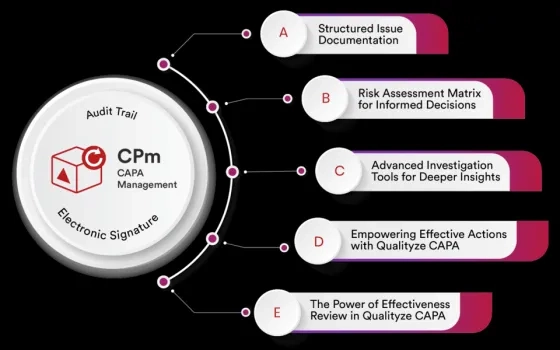SEBI considers providing enhanced investor security for Fractional Ownership of real estate assets.
Ankita, an experienced working professional, was eager to explore investment opportunities. She had heard about the booming real estate market and wanted to invest some of her funds in real estate assets. However, she was unfamiliar with the authenticity of web-based platforms through which she could make her investment and its associated risks. Gauri, her elder sister with some experience in the field, explained that fractional ownership platforms (FOPs) enabled investors to own a small portion of a real estate property, sharing the benefits and risks associated with it. This avenue allowed a retail investor to invest in large commercial real estate assets, with relatively smaller amounts.
Gauri also emphasized the importance of transparency for safe investments and shared a few key checks that Ankita should consider before investing. As Ankita delved deeper, she realized that different platforms lacked uniformity in approach and there was no regulatory protection. However, at the same time, she stumbled upon an intriguing proposal by SEBI. It seemed that SEBI was concerned about the rising fraudulent activities due to the lack of regulations of FOPs and had proposed to provide regulatory oversight. Soon Ankita realized the importance of conducting thorough due diligence, verifying the credentials of platforms, and staying abreast with regulatory covenants before making any investment. Considering Gauri's guidance and SEBI's efforts to safeguard investors' rights, Ankita decided to understand all the associated risks before making the investment. She considered waiting till such platforms were registered under SEBI to foolproof her investments.
Over the past 2-3 years, India has seen rapid expansion of web-based Fractional Ownership Platforms (FOPs) for real estate, which allow retail investors to invest relatively smaller amounts in properties. FOPs allow investors to invest in various segments of real estate such as office spaces, shopping centers, conference centers and warehouses, entailing an initial investment of INR10-25 lakhs. Emerging trends indicate a rise in fractional ownership due to rising property prices, changing lifestyle preferences, and an increasing number of start-ups and investment platforms.
However, these investments lack a standard framework, independent valuation or diligence of information provided to investors. Owing to these concerns, there is a higher risk of investors falling prey to mis-selling. Led by the proliferating investments with FOPs, SEBI has proposed to bring FOPs under regulatory ambit to safeguard investors’ rights and facilitate the orderly development of the real estate. As these real estate assets offered on FOPs are akin to the real estate properties defined under the REIT Regulations, SEBI has proposed such platforms to be brought under MSM (micro, small, medium) REITs.
Major risks associated with FOPs and key checks for investors
- Risks associated with disclosures
FOPs lack uniformity of disclosures in the valuation of real estate, disclosures made at the time of soliciting investments to the investors, lease, rental or tenancy documents, and terms arrived at with the lessees. Disclosures that include receipts of lease payments, due payment of outgoings (property taxes, electricity, or water charges), and status of lease renewals or cancellations are also not revealed to the investor. Investors should look at the full extent and nature of the operations of FOPs, including their role in dealing with developers and investors, managing real estate projects, and operating the platforms that facilitate disclosure or transactions.
- Issues associated with compliance
Certain FOPs have taken a real estate agent registration with state-level RERA. However, RERA’s oversight is limited. This does not encompass the extended operational aspects of FOPs. Such registration does not imply end-to-end regulation by RERA of the FOP and its role/activities which can be a risk to the investors in terms of assurance mechanism. Before making an investment, investors should check whether the complete set of activities undertaken by FOPs falls under the regulatory ambit of RERA, as some of the FOPs are operated by real estate agents, brokers, and property managers.
Further, several FOPs do not adhere to the guidelines of the Prevention of Money Laundering Act, 2002 (PMLA), or the Know Your Customer (KYC) requirements set by financial sector regulators. FOPs seem to adopt their own customer identification norms, leading to a lack of standardization and uniformity.
- Lack of transparency for exit routes and price determination
Currently, for exiting or liquidation of fractional investment, the investor is dependent upon the FOP for the necessary information to aid diligence by potential purchasers. SEBI has highlighted that FOPs that facilitate direct ownership of real estate within a large number of individuals do so by Power of Attorney (POA), which creates a dependency on FOP for any transfers. Lack of transparency when an investor needs liquidity could lead to investor grievances as investors are not provided with the necessary information for exiting the fractional investment. Investors should run checks for such POAs as they have been misused in different situations leading to added risks for investors.
Key proposals made by SEBI to safeguard investments
- Registration of FOPs under REIT regulations
SEBI proposes that FOPs and other entities facilitating fractional investment in real estate must register with SEBI as MSM REITs and comply with SEBI's specified registration process. MSM REITs should include separate and distinct entities serving as a trustee, sponsor, and investment manager. SEBI also proposes, MSM REIT to be set up as a Trust under the Indian Trusts Act, with an ability to establish separate schemes for owning real estate assets. This would be done through SPVs (Special Purpose Vehicles) constituted as a company under the Companies Act 2013. MSM REIT Scheme shall have full control and shall hold 100% equity share capital in all SPVs.
- Prerequisites for SEBI registration
Under SEBI’s regulatory perimeter, the sponsor, applying for registration of MSM REIT shall have a net worth of at least INR20 crores. SEBI also proposes that to come up with an initial offer of a scheme, the size of the asset proposed should be at least INR25 crores and not exceed INR499 crores. Such requirements would ensure sound and stable financial health.
- The reporting requirement to ensure compliance with provisions proposed
The MSM REIT Schemes shall be bound by periodical disclosure requirements required under the listing agreement with the exchanges to ensure compliance with the proposed regulations. To ensure that the underlying assets of MSM REITs are valued accurately, a full valuation including a physical inspection of the properties will be done on a quarterly basis for each scheme making investments safer.
- Fair price determination and exit opportunity
Listing of units and trading through the stock exchange provides an exit to investors whenever desired. Registration as MSM REIT would ensure liquidity by listing and investor redressal mechanisms to safeguard the investors.
Overall, the regulatory oversight would benefit investors by providing them with fair and transparent pricing, liquidity and exit opportunities, and a robust risk management framework. Moreover, the regulatory framework of REIT Regulations would be extended to FOPs to provide similar tax benefits for SEBI registered REITs. Providing necessary regulations would institutionalize the segment, increase liquidity, lead to better price discovery, and attract a larger quantum of capital in the real estate sector through retail investors.
About the Author:
Shreeda Goel
Shreeda is an experienced real estate consultant with experience in the field of Business Development and Research at Colliers India. She and her team work together to share market insights for different verticals of real estate industry like office, industrial, residential markets at Pan India level.

















